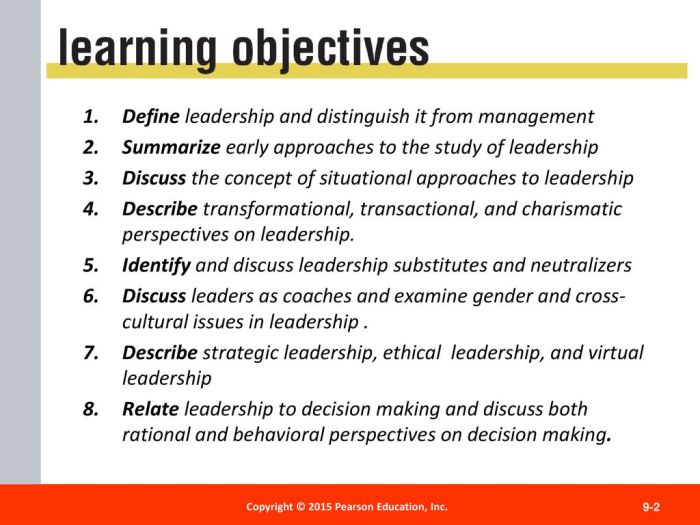Neutralizers of leadership are usually helpful to leaders. This concept challenges the traditional view of leadership and highlights the paradoxical benefits that obstacles can bring to leaders’ development and effectiveness.
Neutralizers are challenges, obstacles, or setbacks that leaders encounter in their journey. While they can be frustrating and disruptive, they also present opportunities for growth and self-discovery. By embracing neutralizers, leaders can gain valuable insights, develop resilience, and enhance their leadership abilities.
Definition of Leadership Neutralizers

Leadership neutralizers are obstacles or barriers that can hinder the effectiveness of leaders. They are behaviors, attitudes, or circumstances that can neutralize or cancel out the positive effects of leadership.Neutralizers can be internal, such as self-doubt or perfectionism, or external, such as lack of support from superiors or organizational constraints.
Impact of Neutralizers on Leaders
Neutralizers can have a significant impact on leaders, hindering their effectiveness in several ways:
Impair decision-making
Neutralizers can cloud leaders’ judgment and make it difficult to make sound decisions.
Damage relationships
Neutralizers can strain relationships between leaders and their followers, eroding trust and cooperation.
Limit personal growth
Neutralizers can prevent leaders from developing their skills and reaching their full potential.
Benefits of Neutralizers for Leaders
Despite their negative effects, neutralizers can also be helpful to leaders in certain ways:
Foster self-awareness
Neutralizers can help leaders identify their weaknesses and areas for improvement.
Promote resilience
By overcoming neutralizers, leaders can develop resilience and the ability to handle challenges more effectively.
Enhance creativity
Neutralizers can force leaders to think outside the box and find innovative solutions to problems.
Strategies for Managing Neutralizers, Neutralizers of leadership are usually helpful to leaders.
| Strategy | Description | Benefits | Potential Challenges |
|---|---|---|---|
| Self-reflection | Regularly assess your own behaviors, attitudes, and beliefs to identify potential neutralizers. | Increased self-awareness, improved decision-making. | Can be difficult to be objective about oneself. |
| Seek feedback | Ask trusted colleagues, mentors, or followers for feedback on your leadership style and areas for improvement. | Unbiased insights, fresh perspectives. | Can be uncomfortable to receive negative feedback. |
| Develop coping mechanisms | Identify strategies for dealing with specific neutralizers, such as mindfulness for stress management or time management techniques for perfectionism. | Improved resilience, reduced impact of neutralizers. | Can take time and effort to develop effective coping mechanisms. |
| Seek support | Build a support network of colleagues, mentors, or coaches who can provide guidance and encouragement when facing neutralizers. | Reduced isolation, increased confidence. | Can be difficult to find the right people to support you. |
Examples of Neutralizers and Their Impact
| Neutralizer | Impact on Leaders | Impact on Teams | Impact on Organizational Outcomes |
|---|---|---|---|
| Micromanagement | Stress, decreased motivation, burnout. | Low morale, reduced productivity. | Increased turnover, missed deadlines. |
| Lack of communication | Poor decision-making, confusion, distrust. | Communication breakdowns, decreased collaboration. | Inefficient operations, missed opportunities. |
| Unrealistic expectations | Stress, anxiety, decreased performance. | Low morale, high turnover. | Missed targets, decreased profitability. |
| Lack of support | Isolation, decreased motivation, burnout. | Low morale, decreased productivity. | Increased turnover, missed deadlines. |
Clarifying Questions: Neutralizers Of Leadership Are Usually Helpful To Leaders.
What are the most common leadership neutralizers?
Common leadership neutralizers include setbacks, failures, conflicts, criticism, and personal limitations.
How can neutralizers hinder leadership effectiveness?
Neutralizers can hinder leadership effectiveness by causing stress, self-doubt, and a loss of confidence. They can also disrupt relationships and damage credibility.
What are the benefits of neutralizers for leaders?
Neutralizers can foster self-awareness, resilience, and growth. They can also help leaders identify their weaknesses and develop strategies to overcome them.

